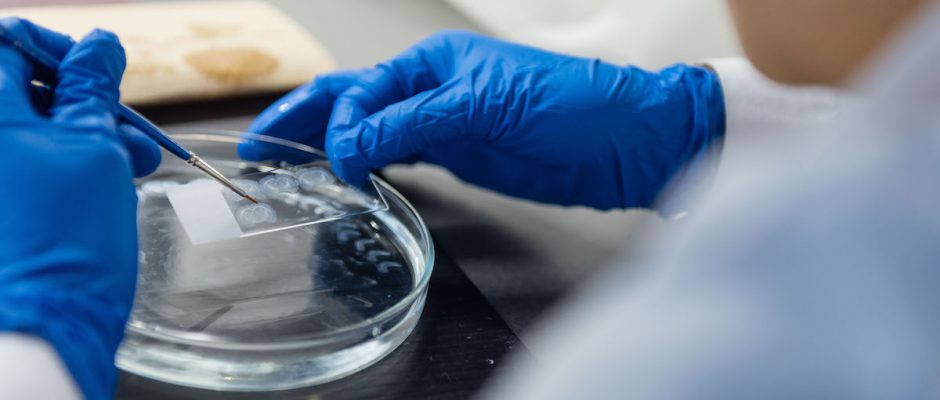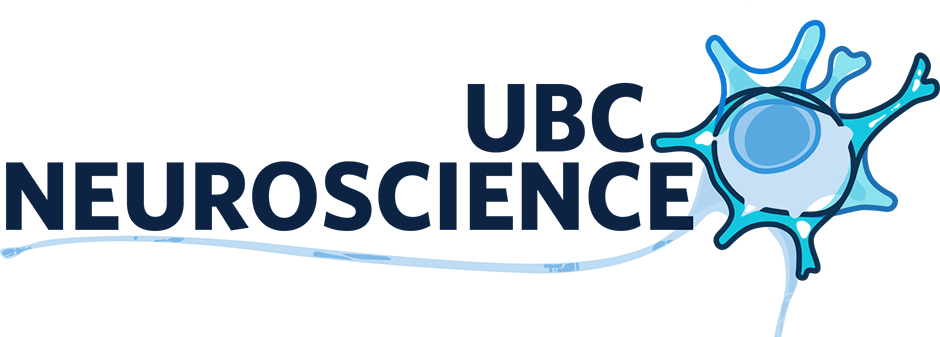
Research
Get involved in Neuroscience research during your undergraduate degree through courses, volunteering, awards, or paid positions. Browse the UBC Neuroscience research areas below.
Our Faculty
Over 100 faculty members have been identified at UBC with specialisations in neuroscience, and conduct research in 10 different sub-categories. Explore these categories below.
Students in the Undergraduate Program in Neuroscience have the opportunity to get involved in these research labs, both as part of the Neuroscience Program and as part of extra-curricular activities such as Summer Research Awards or Research Assistant Positions.
Cognitive neuroscience explores how our brains have a role in our mental processes. It involves studying neural circuits involved in cognitive processes like memory, attention and language. Cognitive neuroscience is interdisciplinary, combining the fields of psychology, neuroscience, and computational modelling. Researchers use imaging techniques like functional magnetic resonance imaging (fMRI), electroencephalography (EEG) and positron emission tomography (PET) to analyse neural data.
View Faculty
Developmental neuroscience studies how the brain develops; from embryonic stages to adolescence to adulthood. Developmental neuroscience explores normal neural development, as well as disrupted development to uncover more information about brain dysfunction and improve therapies. Finally, developmental neuroscience gives insight to critical periods in brain development and development of brain region connectivity.
View Faculty
Computational neuroscience combines neuroscience, math, and computer science to develop mathematical models and abstractions to study neurological processes. Computational neuroscientists use these models to understand the physiology, structure and function of the nervous system.
View Faculty
Neuroscientists researching motivation, emotion and arousal study the function of neurotransmitters and brain circuits to identify how behaviours are influenced. Researchers in this field may use a range of techniques including behavioural studies, imaging data and molecular studies to collect their data.
View Faculty
Motor neuroscience looks at how the brain processes and produces movement, as well as how it integrates sensory feedback. It involves the study of brain motor regions, the spinal cord, and the muscles in order to understand how these systems integrate together to produce movement.
View Faculty
Researchers in this field study the morphology and function of non-neuronal cells within the brain. Researchers collect data on how glia affect brain health, as well as the mechanisms involved in cell-to-cell communication.
View Faculty
Neuroendocrinology is the study of how the brain interacts with hormones and controls their release throughout the body. Researchers study the interactions between the brain and target organs, employing a variety of behavioural and molecular techniques.
View Faculty
In this field, researchers study the effects of neural injury on the brain and nervous system to develop better treatments and restore function. Researchers look at the brain on a cellular and molecular level but also study the impact of brain damage on behaviour.
View Faculty
Researchers study the biological basis of psychiatric disorders, combining the fields of psychology and psychiatry with neuroscience. Researchers look at genetics, injury, neurotransmitter imbalances and brain circuit dysfunction to better their understanding of psychiatric disorders.
View Faculty
In this field, researchers aim to understand how sensory systems, such as smell, taste, and hearing help us integrate and perceive information from the environment.
View Faculty
NSCI Courses
NSCI 400 Neuroscience Capstone and NSCI 448 Directed Studies in Neuroscience are opportunities for students to gain directed research experience. See more information on our course highlight pages (NSCI 400 or NSCI 448).
Co-operative Education Program in Neuroscience
Co-operative education integrates academic study with work experience during a student's degree. Students in Neuroscience may take part in this optional program. The Co-operative Education Program in Neuroscience consists of 16 months of work placement (4 terms) and is designed to prepare students for careers in governmental, industrial and academic positions. These work terms are normally taken consecutively following the summer after third year, and students apply in year 3. Students must complete all four work terms to receive a Co-op designation.
Admission to the program is based on academic performance as well as resumé and interview. Enrolment is determined based on availability of placements. Additional information can be found on the Co-op website.
This year's due date for the Neuroscience Co-op Program is October 1st, 2025.
Undergraduate Research Funding
| Award Name | Description |
|---|---|
Apply together with your research supervisor, through the department of your supervisor. These awards are typically for full-time positions in the summer. |
|
For full-time positions in the summer, minimum duration 8 consecutive weeks. Often, if you apply for an NSERC USRA, you will be automatically considered by the department for a SURE (if the department of your supervisor is in Science). Students in the Undergraduate Program in Neuroscience can apply to the Neuroscience Program for nomination (Neuroscience SURE Nomination Form). | |
Summer research positions, full-time only. Apply together with your supervisor. Only available with faculty members from the Psychology department. |
|
For summer research positions, full-time only. Apply together with a faculty member from the faculty of Medicine only, but the awards are open to all undergraduate students. |
|
Faculty of Medicine Multidisciplinary Research Program in Medicine | For summer research positions, full-time only. Faculty of Medicine professors pair with professors from other faculties to create research project positions for undergraduate students. Students view available projects on the MRPM website in March and submit their applications. |
For summer research positions, full-time only. Apply with a faculty member associated with the Djavad Mowafaghian Centre for Brain Health (DMCBH), the Genome Science and Technology Graduate Program (GSAT), or the School of Biomedical Engineering (SBME). |
|
For summer research positions, full-time only. Apply with a CBR (Centre for Blood Research) or LSI (Life Sciences Institute) Principal Investigator. |
|
For summer research positions, full-time only. Either apply together with a faculty member for the award in late January or apply for a posted position on CareersOnline in March. |
|
Work Learn research positions are part time. Typically, the best opportunities for a Work Learn research position are the ones you create by contacting a faculty member directly about working in their lab, but positions are posted on CareersOnline. See the Work Learn site for information about how to organize a Work Learn research position. |
5 Steps to Getting Involved in Research
1. Learn more about the neuroscience research happening at UBC.
• Browse through the neuroscience faculty directory to learn more about the labs at UBC.
• Attend on-campus talks such as the Neuroscience Research Colloquium.
• Go to events like the journal club hosted by the Neuroscience Club.
• Go to office hours to ask your professors about the research they do.
• Attend conferences such as NURC or MURC.
• Take part in opportunities like the Research Experience Program.
2. Shortlist some labs you find interesting.
• Go to the lab's website to learn more about the research they do and read recently published papers by this lab.
3. Reach out to professors and their graduate students.
• Email professors or graduate students directly to see if they are looking for research assistants. It is best to keep your email short and to the point.
• Prepare a resumé to attach in your email. Note that some labs may request your transcript and an interview. Browse through resumé and interview tips.
4. Complete the necessary training for your research position. Note that many of these research positions will likely be volunteer positions at first.
• Your lab will provide you with more information about specific training courses you may have to take.
5. Apply for undergraduate research awards or Directed Studies courses.
• Once you have settled into the lab, you can turn your volunteer position into a paid position via research awards.
• Alternatively, you can consider a Directed Studies where you earn course credit for your work.
